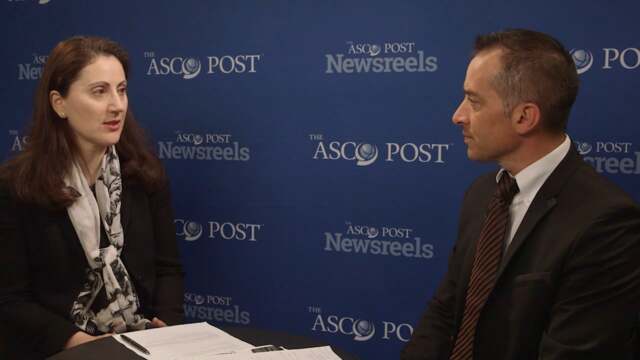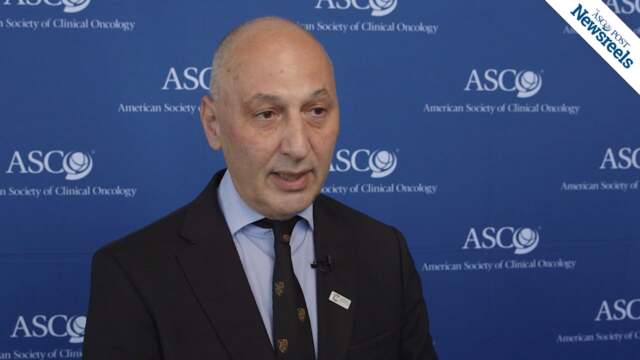Rakesh Chopra, MD, and Mary Gospodarowicz, MD, on The Indian Perspective of the Current State of Cancer Research and Treatment
2016 ASCO Annual Meeting
Rakesh Chopra, MD, of the Artemis Health Institute, and Mary Gospodarowicz, MD, of Princess Margaret Hospital, discuss oncology from an international point of view.
Luis G. Paz-Ares, MD, PhD, of the Hospital Universitario 12 De Octubre, discusses in Spanish study findings on adding necitumumab to gemcitabine and cisplatin chemotherapy in the first-line treatment of patients with stage IV squamous non–small cell lung cancer.

To see the English language version of this video, please
click here.
Lee S. Schwartzberg, MD, of The West Clinic, reports on progress of the now year-old ACCC initiative to speed adoption of immunotherapeutics in community practices.
John D. Hainsworth, MD, of the Sarah Cannon Research Institute, discusses early findings from this umbrella basket study on targeted treatment, outside of current drug indications, for different types of advanced solid tumors (Abstract LBA11511).
Vali A. Papadimitrakopoulou, MD, of MD Anderson Cancer Center, and Fabrice Denis, MD, PhD, of the Institut Inter-regional de Cancérologie Jean Bernard, discuss findings from a phase III trial on an app used between visits for early detection of symptomatic relapse and complications in high-risk lung cancer patients (Abstract LBA9006). To see Dr. Denis discuss this study in French, click here.
 To see the French language version of this discussion, click here.
To see the French language version of this discussion, click here.
John P. Neoptolemos, MD, PhD, of the University of Liverpool, discusses findings from this international phase III study of adjuvant combination chemotherapy: gemcitabine and capecitabine vs monotherapy gemcitabine in patients with resected pancreatic ductal adenocarcinoma (Abstract LBA4006).





